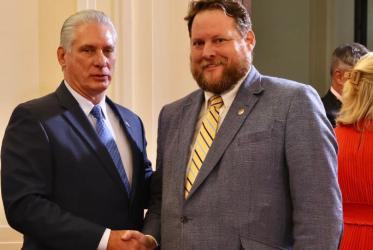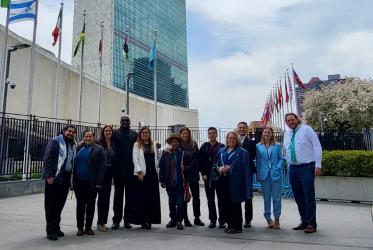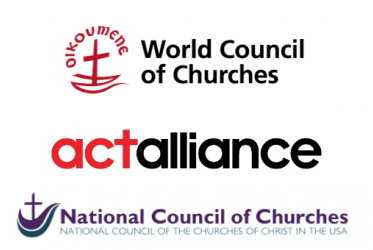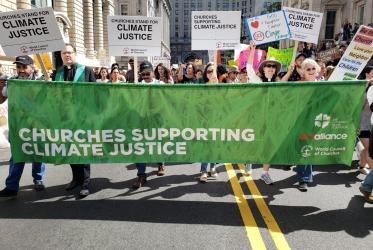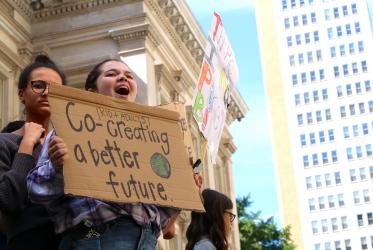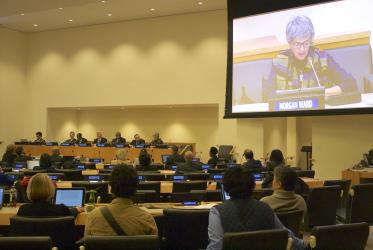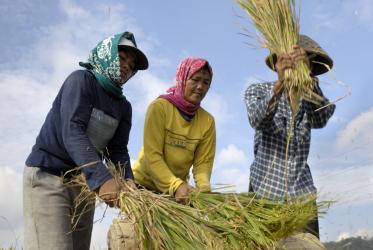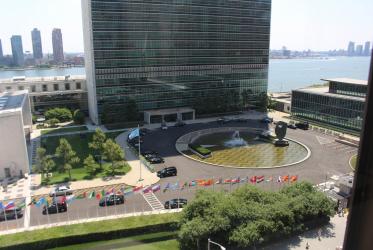Displaying 1 - 20 of 41
As UN assembly opens, prayers for children and young people
20 September 2023
Climate emergency: faith-based groups pledge to amplify prophetic voice
25 September 2019
As Climate Summit begins, churches call for action now!
23 September 2019
WCC joins global climate strike with throngs of young people
21 September 2019
5th Annual Symposium on the Role of Religion and Faith Based Organizations in International Affairs
29 January 2019
Conference Room 2, United Nations secretariat, New York
EKD delegation, other visitors grace WCC
26 October 2018
At CSW62, “stories are the heartbeat”
21 March 2018
Religious organizations speak up on refugee crisis at UN event
29 January 2018
Tveit: Beyond national borders, we are one humanity
23 January 2018
WCC to co-host public event on migration and displacement at UN
17 January 2018
4th Annual Symposium on the Role of Religion and Faith Based Organizations in International Affairs
22 January 2018
United Nations Headquarters, New York

